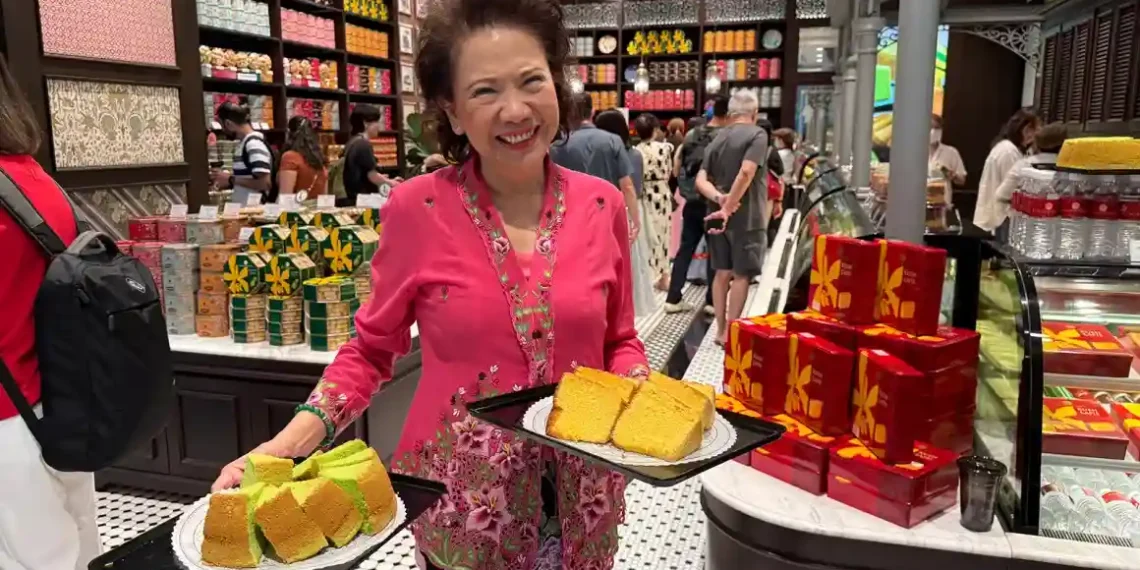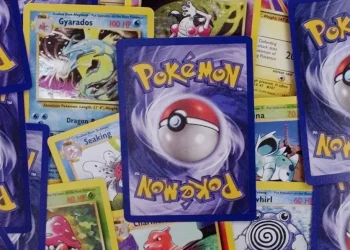Singapore’s Pandan Cake Craze Goes Global: Meet the Family Behind the Spongey Revolution
In Singapore, a bright green cake is more than just a dessert – it’s a daily ritual. Locals enjoy a slice of pandan chiffon cake on their way to work or grab an entire one for special occasions like birthdays. With its light, fluffy texture and a subtle grassy vanilla flavor, the cake has become a beloved staple in the city’s culinary landscape.
The cake’s signature color and taste come from pandan, a tropical plant believed to have originated in Indonesia’s Moluccas Islands. It’s been used in cooking for centuries and has found a special place in Singapore’s food culture, particularly in the pandan chiffon cake. First appearing in the 1970s, the cake has since spread across the island, from humble neighborhood bakeries to high-end restaurants.
At the heart of this pandan cake craze is one family-owned bakery: Bengawan Solo. Founded in 1979 by Anastasia Liew, the bakery began as a small neighborhood shop selling homemade cakes. It wasn’t long before it grew in popularity, and today, the brand has over 40 locations throughout Singapore.
“I made it popular in Singapore,” Anastasia Liew proudly states, while her son Henry, now a company director, humorously adds, “Sorry, we’re not very modest.”
While Bengawan Solo sells a variety of traditional Asian cakes and pastries, such as kueh lapis (layer cake), ondeh ondeh (glutinous rice balls filled with palm sugar), and pineapple tarts, it’s the pandan chiffon cake that has become their signature product.
The bakery’s growth isn’t just limited to Singapore. Over the years, Bengawan Solo has gained a significant following thanks to word of mouth and celebrity endorsements. In 2015, Mandopop star JJ Lin gifted Bengawan Solo cakes to fellow judges on a Chinese singing show. In 2022, Taiwanese music legend Jay Chou shared his love for the cakes on Instagram after being gifted them during his performance in Singapore.
As of last year, the bakery sold an impressive 85,000 pandan chiffon cakes, each priced at about 22 Singapore dollars ($17), bringing in around 76 million Singapore dollars ($57 million) in total sales, a jump of 11% from 2023. However, the family sees even greater potential for growth outside Singapore.
“I don’t think we can grow very much more in Singapore,” Henry admits. Instead, the focus is on introducing Bengawan Solo to other parts of Asia and the world, with an emphasis on food gifts, capitalizing on the region’s strong gift-giving culture. Henry also mentions that the company is exploring unique packaging to appeal to global markets.
Bengawan Solo’s presence has grown to include five locations at Singapore’s Changi Airport, one of the busiest airports in the world. These airport stores now account for more than half of the company’s total sales, and demand for the pandan chiffon cake has spread to places like Hong Kong, where it’s become a favorite gift among travelers.
But global expansion has its challenges. High rental costs in cities like Hong Kong have posed obstacles, and the family is committed to maintaining the quality of their products. They source most of their ingredients locally, including pandan leaves, which they get from just across the border in Malaysia.
Despite these hurdles, the appetite for pandan is growing worldwide. In Hong Kong, a bakery called Pandan Man is selling pandan cakes in upscale shopping malls, and pandan-infused treats like mochi egg tarts and cronuts are popping up in cities like New York, San Francisco, and Los Angeles.
Keri Matwick, a senior lecturer at Nanyang Technological University in Singapore, has researched food trends and language. She observes that Asian ingredients like matcha, coconut, and ube are gaining popularity in Western desserts. Matcha, in particular, has seen such widespread use that some sellers in Japan are warning of a potential shortage due to the ingredient’s overwhelming demand.
Now, pandan may be on the brink of its own global rise. “Matcha has already set that precedent of something green being okay,” Matwick notes. “I think pandan is starting to emerge as more of a star than it ever has before.”
As demand for pandan-flavored products grows, we may soon see this vibrant green cake become a global sensation, just as matcha did before it. For now, it’s clear that Bengawan Solo – and the Liew family behind it – is at the forefront of the pandan revolution, taking this beloved Singaporean treat to the world.
This article was rewritten by JournosNews.com based on verified reporting from trusted sources. The content has been independently reviewed, fact-checked, and edited for accuracy, neutrality, tone, and global readability in accordance with Google News and AdSense standards.
All opinions, quotes, or statements from contributors, experts, or sourced organizations do not necessarily reflect the views of JournosNews.com. JournosNews.com maintains full editorial independence from any external funders, sponsors, or organizations.
Stay informed with JournosNews.com — your trusted source for verified global reporting and in-depth analysis. Follow us on Google News, BlueSky, and X for real-time updates.













